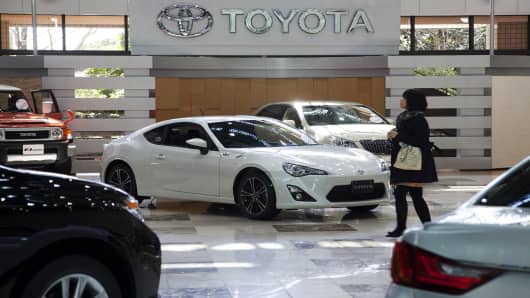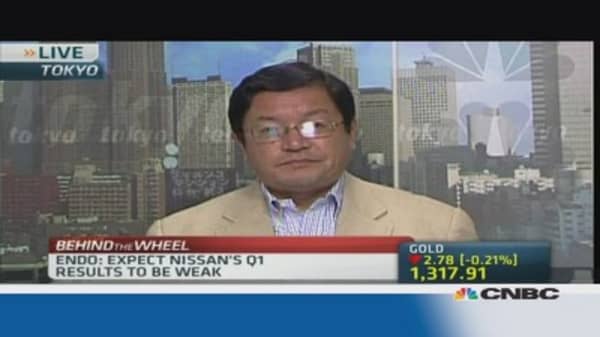Toyota Motor's slower-than-expected growth in Southeast Asia, its third biggest regional market, is becoming a headache as the world's best-selling carmaker closes on its six-year-old profit record.
In ASEAN - the biggest market for Toyota after North America and Japan, overwhelming Europe or China - the company has been hurt by government policy swings in Thailand and Indonesia and underperformed industry-wide growth.
In Southeast Asia's biggest car market Thailand, Toyota sold around 237,000 vehicles in January-June, down 2 percent from the same period a year ago. That compared to an industry-wide growth of 22 percent, as it was hit by the end of a government subsidy as well as weakness in fuel-efficient small cars.
(Read more: Toyota leads gains in strong July for automakers)
In Indonesia, Toyota's vehicle sales are likely to have increased year-on-year in the first half of 2013, but at a considerably slower pace than the market as customers hold off purchases ahead of an expected launch of a new small car.
Toyota's ASEAN exposure is higher than its rivals Honda Motor and Nissan Motor. ASEAN represents a little more than 10 percent of Toyota's total global sales.
Globally, Toyota has posted a 5.4 percent rise in its biggest regional market North America in January-June as the United States is seeing the strongest pace of annual sales in more than five years.
In Japan, its second largest market, sales dropped 12 percent year-on-year after green car subsidies ended last year, but it is seeing strong sales of profitable luxury models.
Toyota, which is expected to this year become the first automaker to produce more than 10 million vehicles in a year, had been on track to hit or get near its record annual operating profit this financial year.
(Read more: At cautious Toyota, low risk rules even as profit booms)
But its Southeast Asian markets could get in the way.
"In the short term, sales are lower than expected in these countries and that could weigh on Toyota's business performance," said Issei Takahashi, an analyst at Credit Suisse in Tokyo.
At the same time, export dependent Southeast Asian countries are bracing for a slowdown after years of easy credit, buoyant consumer demand and strong domestic investment. The U.S. Federal Reserve is expected to soon start tapering its stimulus program that has fueled the surge of credit in the region.




